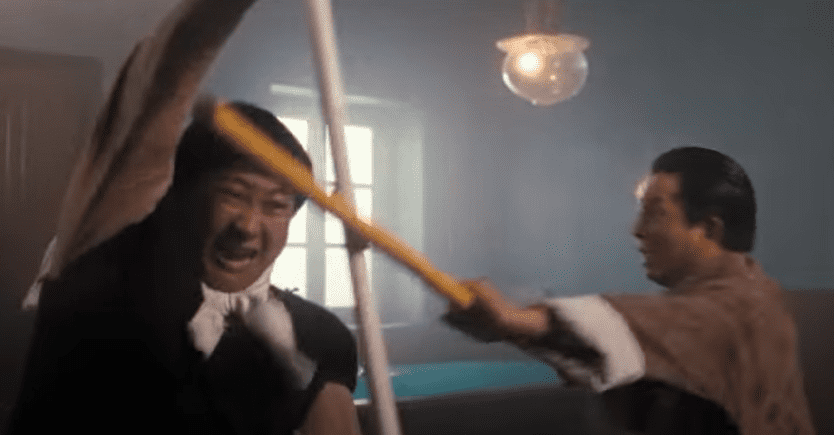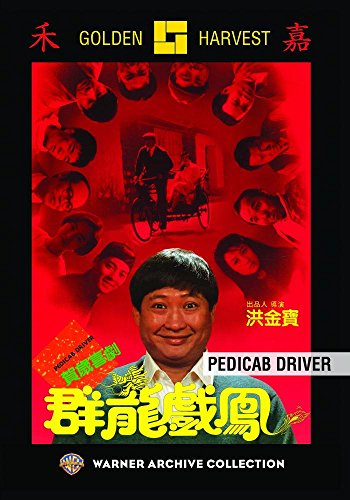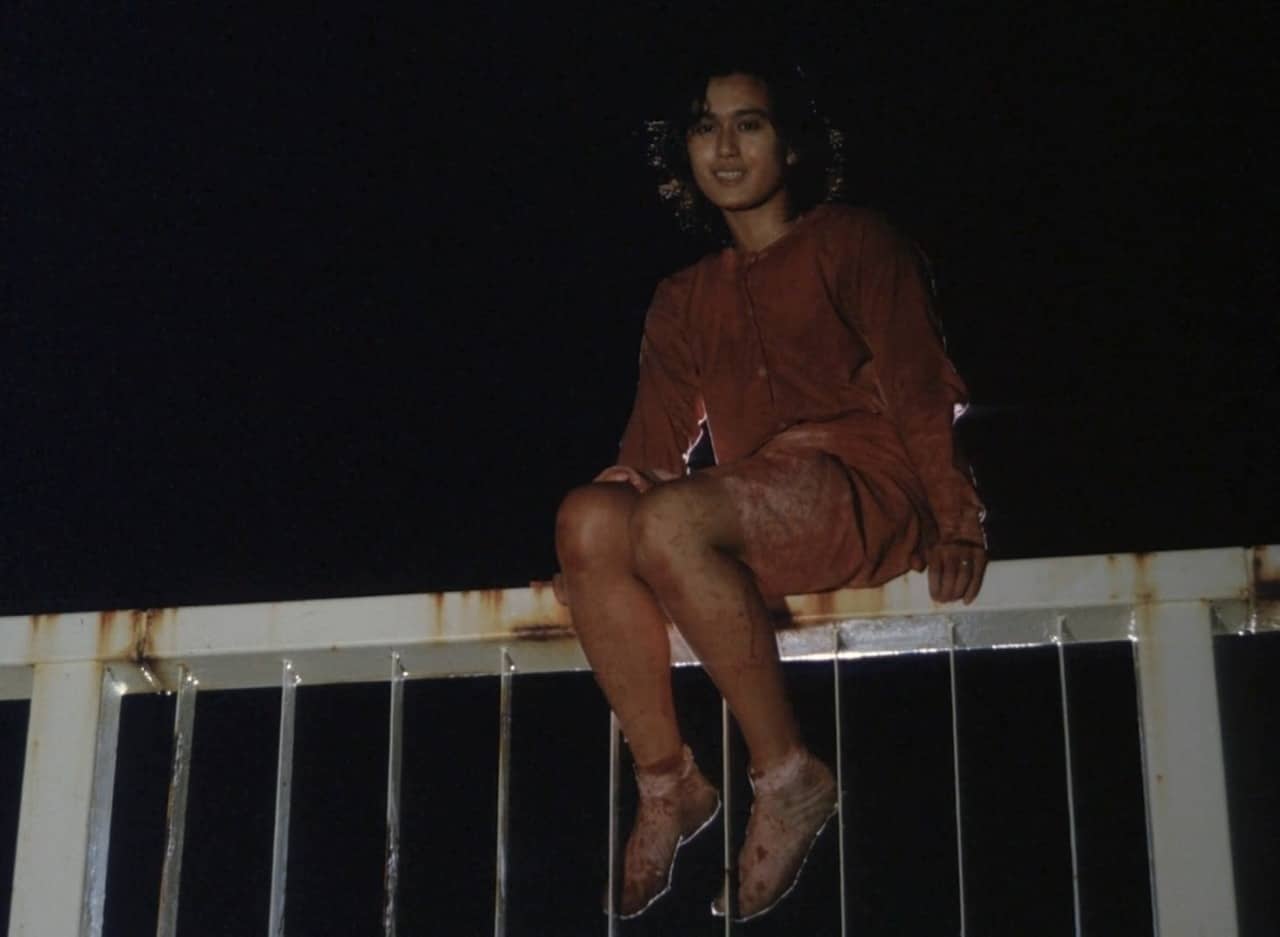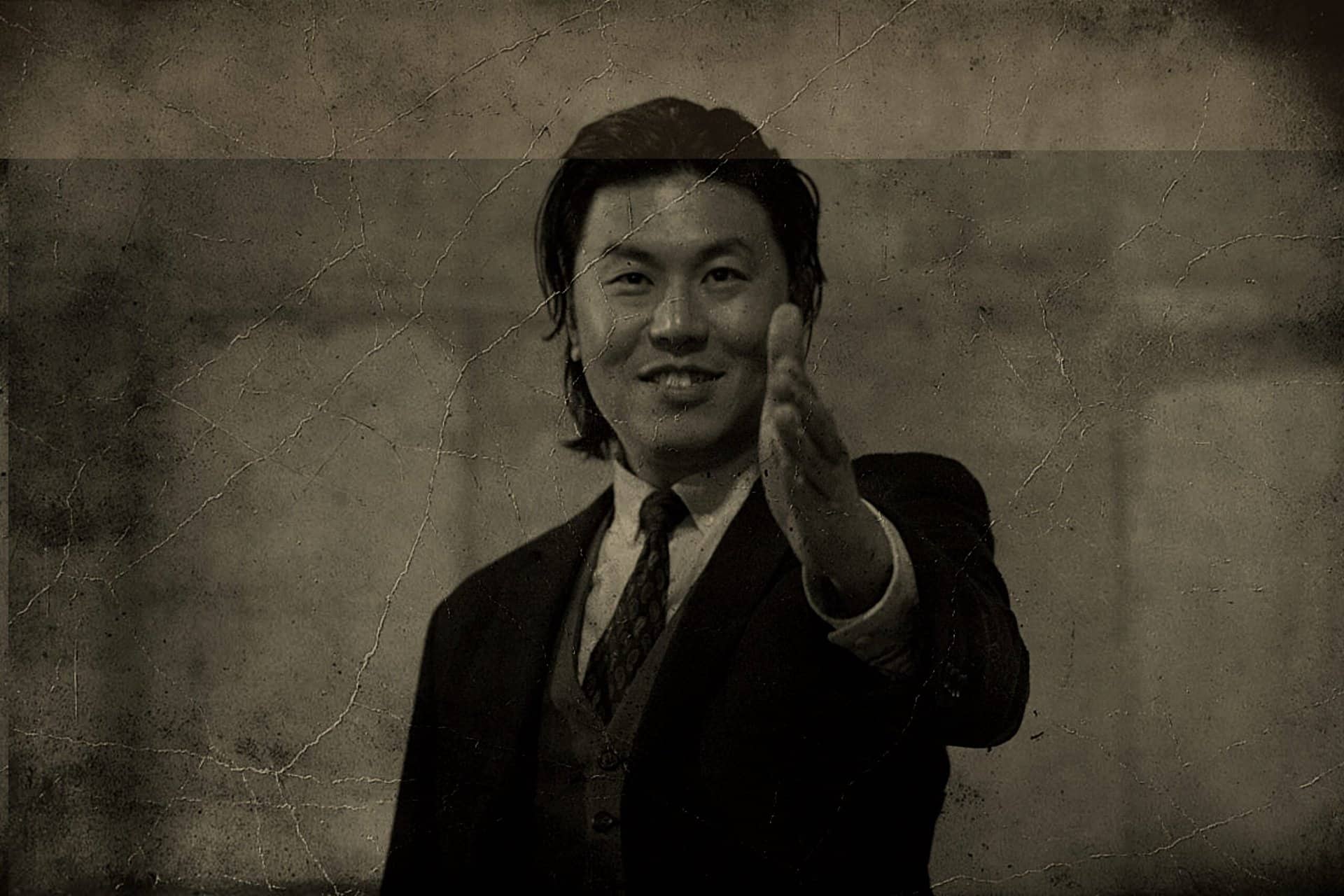As modern action cinema becomes ever more beautified, it's incredible to look back at who became stars and wonder if they would ever get the opportunity today. Sammo Hung is one in particular as he doesn't “look” like a star but has the presence and talent that befits one of the legendary figures of the industry. If you wanted an example, just watch this feature as it remains one of the masterworks that probably doesn't get as much recognition as it deserves.
Buy This Title
on Amazon
Lo Tung (Sammo Hung) is a pedicab driver in 1930's Macau. The pedicab drivers and coolies are frequently at odds over picking up customers and a peace-making meeting accidentally degenerates into a brawl. Malted Candy (Max Mok) collects Hsaio Tsui (Fennie Yuen) as a fare and they are instantly attracted to each other. Unbeknownst to Malted Candy, it transpires that Hsaio Tsui is a prostitute under the control of Master Six (John Sham). The arrival of Ping also stirs romantic interest in Lo Tung and a date ends up in a chase that results in Ping accidentally losing her money as they crash into a gambling house. In an effort to get the money back, Lo Tung takes on the boss of the house (Lau Kar Leung). Malted Candy rejects Hsaio Tsui when he finds out her occupation only for all the pedicab drivers to be scolded by Ping leading to their reuniting. Master Six sends his thugs to reclaim her and tragedy results leading to a vengeful Lo Tung storming Master Six's mansion.
The showstopper for any martial arts movie fan is the mid-movie interlude where Sammo Hung takes on Shaw Brothers legend Lau Kar-leung. In modern parlance, this would be called fan service as the scene in terms of narrative adds absolutely nothing. Do you care though, as this is two legends squaring off for what is, to the best of my recollection, the only time. The editing is razor sharp and it is a classic scene with both parties trading insults as well as blows. The duel moves from fists to spears and an ultimate show of respect in the conclusion. The rest of the action is Sammo at his finest, with each of the three major action scenes varying in style. The opening merges comedy (George Lucas may not want to pay too much attention) with the flowing camerawork. The mid film duel is as discussed and the finale features confrontations with Eddie Maher and Billy Chow. The latter is short, sharp, and brutal. The editing here is exceptional, with the cuts, after almost each blow, accentuating the impact of the hits and quickening the pace. This is a pure example of quality over quantity. The action we get here is a masterclass for any filmmaker to observe.
What elevates this into the top echelon of Sammo Hung's work is the wrap-around story. It's easy in an action film for the narrative to get lost amidst the mayhem, but here, everything meshes together perfectly. There is a humanity that often seems lacking. The performances of Max Mok and Fennie Yuen are excellent and their star-crossed relationship gives the film most of its heart. Their final scene is heart-breaking and leads to one of the finest moments of friendship seen in action cinema. Sammo Hung and Meng Hoi just exchanging a glance before heading off to take revenge. The subject of hang dai or brotherhood is often explored but here it is just summed up in a moment.
All good features need a good antagonist and in John Sham's odious Master Six we have one of the best. His comic performances always straddled the line between funny and annoying and here he gets to be the most repellent, evil version of his screen persona. There are no redeeming features here whatsoever and he plays it to the hilt. From his gold teeth, slicked back hair, to the fast talking schtick, he is a character you long to see get his comeuppance. It is a fantastic creation and one of the best villains in martial arts cinema, even though he doesn't perform any himself.
A criticism aimed at Sammo Hung is that his female characters are often subjected to humiliation and scorn. Now you could argue that Fennie Yuen falls into that category playing a prostitute, but she is given more grit than most and has a fundamental humanity that elevates her character from the usual archetype. Even Nina Li Chi has a bit more depth, getting to scold the men for their treatment of women. It's an usual circumstance for a Sammo Hung vehicle. Equally the men react to this. They actually recognize their judgmental behaviour, even the comical supporting cast which gives the film some moments of genuine pathos that comes across as organic rather than forced.
The Macau setting also serves to give “Pedicab Driver” a more distinctive look with a more period feel and has less of the hurried nature of the suburban Hong Kong. This places it alongside the other two of Sammo's late 80's trilogy of classics “Millionaires Express” and “Eastern Condors” in having distinctive locations. The direction is again some of Sammo Hung's best work. He makes the most of his own physical build for comical effect, but the camera placement throughout is superb. The lighter moments have exquisite comic timing and when the drama and emotion kicks in, it is handled without melodrama.
There is an argument for “Pedicab Driver” being considered Sammo Hung's finest piece. A perfectly paced, superbly directed blend of drama, comedy and action that just hooks you in from the outset. The action is inventively choreographed and the icing on the cake is the Sammo Hung vs Lau Kar Leung confrontation. If that doesn't sell this movie to you then nothing will!

















